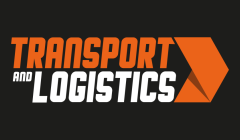Rail passengers in Kent and parts of East Sussex will soon benefit from more convenient and smoother journeys thanks to a £5.5 million plan to roll out smart cards across Southeastern’s network.
Southeastern will bring in smart cards, initially for season tickets only, as an alternative to paper tickets from December 2016. This follows a deal with the Department for Transport as part of the government-funded South East Flexible Ticketing (SEFT) programme. Work will now begin to upgrade Southeastern’s ticketing systems and equipment to allow passengers to use smart cards to travel across the majority of Southeastern’s network.
Smart cards provide significant benefits including the ability to purchase online and avoid ticket office queues, and quicker entry through automatic ticket barriers.
Rail Minister Claire Perry said: “As part of our long-term economic plan we are bringing our railways into the 21st century. We are making the biggest investment in rail since the Victorian era while taking advantage of technology like smart cards.
“Smart ticketing is a common sense innovation that makes life easier for passengers. It allows for more straight forward journeys and I’m delighted Southeastern will be rolling them out across much of their network.”
For passengers, benefits will include:
- easier purchase of tickets online and collection at stations
- shorter queues at ticket offices
- more durable tickets that do not wear out as quickly as paper ones
- much quicker and more reliable passage through automatic ticket barriers
David Statham, Managing Director for Southeastern, said: “I am very pleased that we have agreed a deal with the Department for Transport that will allow us to bring in smart cards on our network.
“These will allow our passengers to beat those Monday morning queues as they will make it much easier and quicker for passengers to buy weekly, monthly or annual season tickets online and load on to their smart card before setting off on their journey.”
Southeastern is the latest operator to sign up to the government’s £80 million SEFT programme, delivered in partnership with the rail industry and transport operators. SEFT aims to promote seamless and convenient travel on different types of transport across London and the south east by encouraging operators to introduce new ticketing technologies.
Because SEFT is government-backed, smart cards will operate seamlessly between different train companies across the region. It also offers the future potential for more flexible ticketing products that could not work on paper-based tickets. When SEFT is complete, 250,000 season ticket holders across the south east will be able to swap paper tickets for smart tickets, accounting for 202 million journeys per year.
Other train operators which have previously signed similar commitments include c2c, South West Trains, Govia Thameslink Railway and Abellio Greater Anglia.
Smart ticketing in the north has also received backing from the government, with £30 million announced in the summer budget 2015 to Transport for the North (TfN), part of which will go towards the rollout of Oyster-style smart ticketing.




